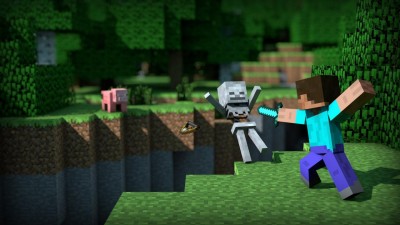At the D.I.C.E. summit this weekend, chief creative officer for EA, Richard Hilleman, took to the stage alongside several other developers for a round-table interview with comedian Pete Holmes.
Hilleman’s comments came in response to Holmes stating that he wished developers and publishers would stop changing around their control schemes across different titles within the same series, but went one step further and said he’d like to see the same principle applied across the board. While many games often share the same control schemes - military FPS titles usually have iron sights mapped to the left trigger, with the fire button being mapped to the right, for example (or sometimes to bumpers, usually in PlayStation titles), it’s not unusual to see games adopt radically different approaches to their controller setup between iterations. The Halo series is particularly guilty of this, with most Halo games moving around the melee, grenade and zoom buttons as successive entries have added in even more combat options, or stripped out others. This is perhaps most apparent in Halo: The Master Chief Collection, which requires players to learn no fewer than 4 completely different control schemes and often having to switch between them repeatedly in multiplayer.
In what appeared to be a statement of agreement, Hilleman responded by saying: “Our games are actually still too hard to learn… the average player probably spends two hours to learn how to play the most basic game. And asking for two hours of somebody’s time… most of our customers, between their normal family lives, to find two contiguous hours to concentrate on learning how to play a videogame is a big ask.”
Also on stage from Electronic Arts was Middle Earth: Shadow of Mordor‘s design director Michael de Plater, who discussed the rise of RPG mechanics across the whole of the industry - something which he actually welcomes. “Every game is an RPG now,” he commented. “You wouldn’t make a game without progression and levels and XP. And I think every game is going to be a social game. Good ideas propagate.”
While there’s certain to be many players who agree with either one or both comments, there are likely to be just as many who disagree, perhaps feeling that restricting developers to a single universal control method, or forcing them to include RPG mechanics, risks stifling innovation. What do you think?



